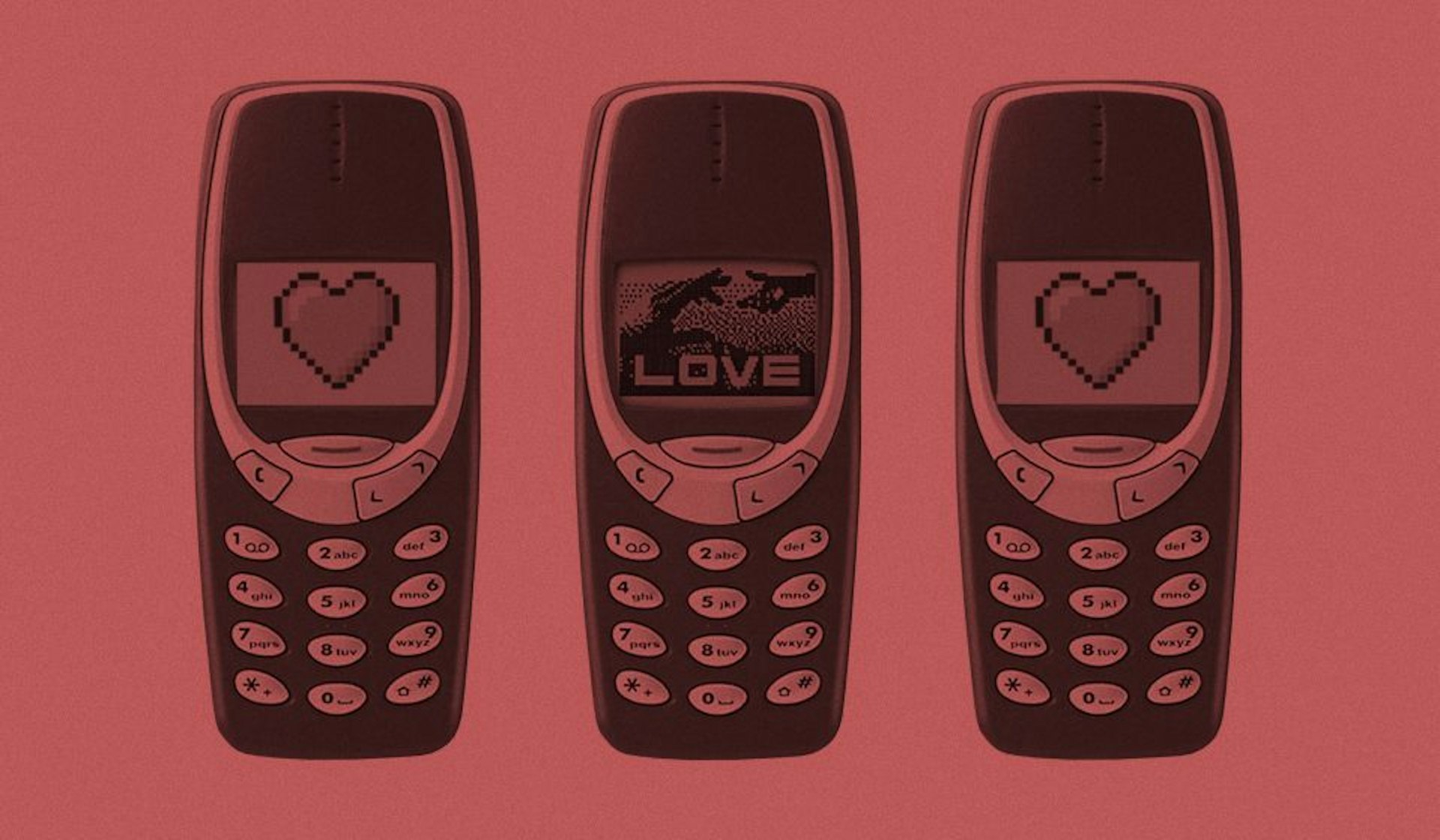
What being online taught me about love and loss
- Text by Emily Reynolds
- Illustrations by Eve Izaak
One night this week, on my way home from a friend’s book launch, I met a woman on the tube. I say we ‘met’ but we didn’t actually speak: instead, she proffered her phone to me, showing me her notes app. “Your hair is a beautiful colour,” she’d written. She asked for my number.
I’m in a relationship, so I said no. But I found her method interesting. It was both distant and intimate, the screen acting as a conduit; somehow less and more vulnerable than speech at the same time. There was something bold about it, something defiant, but it was also tentative. Would she have been able to talk to me without the screen? I don’t know.
It made me think about my relationship with my partner: recently long distance, I had pessimistically presumed that the space between us would change the relationship, maybe even make it shrink. But it hadn’t: the distance had given it a new element, had made it grow in a different direction. In some ways, it had made us closer, our constant online communications making us love each other more.
I’d been thinking about this already, the conduits through which we parse our experiences and how technology can be so vital in doing so. I’d been reading Edouard Louis’ book A History of Violence, an autobiographical retelling of a violent rape, and it had made me reconsider so much my own relationship to my trauma. I’d tended to it delicately for years, put so much effort into making it flesh; I’d created a narrative, something easy to read and easy to follow. I’d retell the story again and again: to therapists, to friends, new boyfriends, in writing, to myself, passing it down to myself so many times it had somehow taken on a new shape, an internal oral history divorced from its source almost entirely.
The internet was the perfect vehicle for this: a place where things could be cut up so neatly, a mother making a meal digestible for her fussy child. It was also a place where bleakness and misery flourished, where making jokes about your trauma was not only encouraged but actively rewarded, where you could get thousands of likes on a post about being depressed or having anxiety or not knowing how to cope. A panic attack wasn’t just a symptom of PTSD anymore: it was a gift.
At first this exercise was a distancing, or at least an attempt at one. I’d embellish, adding details that weren’t quite right but felt like they should be; I’d make jokes, insist to increasing resistance that what had happened was in fact funny. ‘Can’t you see the absurdity of it all?’ I’d ask. ‘Surely you see just how funny it really is?’
Writing about your trauma online might seem like a way to move away from it, and in some ways it is, helping you process what happened. But, eventually, it brought me closer, too. Years on, it was now devoid of meaning, almost contentless – it had ceased to mean anything at all, some strange infernal glyph. I was able to look at it properly for the first time – not because it was absurd or because I could make jokes about it, but to really see what it had done to me.
Most of these things have nothing in common, other than the fact they’re things that have happened to me. But whether it’s a blossoming intimacy or an established relationship, whether it’s something that happened beyond your control that you don’t know how to respond to, there is a shared contradiction mediated by a screen. If you look directly at the sun, you can’t see it; sometimes distance is what we need to be close.
Follow Emily Reynolds on Twitter.
Enjoyed this article? Like Huck on Facebook or follow us on Twitter.
